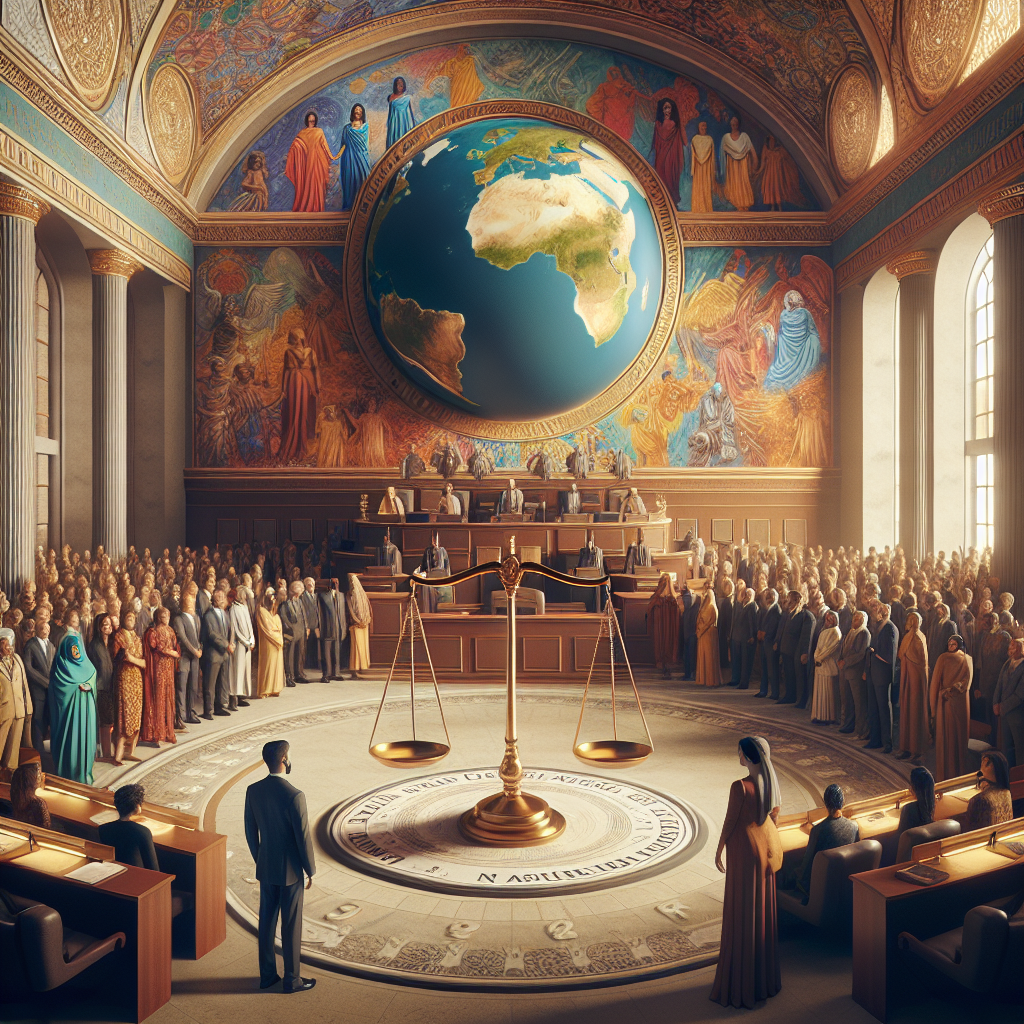
Description
Major Related too : Human Rights Studies, International Law and Human Rights, Global Justice and Development, Peace and Conflict Studies, Global Governance, Political Science, Sociology
Description : Human rights and global justice are fundamental pillars of a just and equitable world. They encompass the principles of fairness, equality, and dignity for all individuals, irrespective of their background or circumstances. Examining these principles and practices sheds light on the ongoing struggle to protect and promote human rights worldwide, addressing pressing issues of injustice and inequality. Moreover, the role of international organizations in this context is crucial, as they serve as mechanisms for coordination, advocacy, and accountability on a global scale. Principles of Human Rights At the core of human rights lie certain fundamental principles that are universally recognized and enshrined in various international treaties and declarations. These principles include: • Universalism: Human rights are inherent to all individuals by virtue of their humanity, regardless of factors such as nationality, ethnicity, religion, or gender. • Inalienability: Human rights cannot be taken away or surrendered, and they are not contingent on the actions or policies of governments. • Indivisibility and Interdependence: Human rights are interconnected, meaning that the realization of one right often depends on the fulfillment of others. For example, access to education is closely linked to the right to health and the right to work. • Non-Discrimination: All individuals are entitled to enjoy their human rights without discrimination of any kind, including race, gender, sexual orientation, disability, or social status. Practices of Human Rights Despite the widespread recognition of human rights principles, numerous challenges persist in translating these ideals into practice. Issues such as poverty, discrimination, conflict, and authoritarianism continue to undermine human rights around the globe. Some common practices that violate human rights include: • Violence and Conflict: Armed conflict often leads to widespread human rights abuses, including the targeting of civilians, displacement, and the use of torture and extrajudicial killings. • Discrimination and Marginalization: Marginalized groups, such as ethnic minorities, refugees, women, and LGBTQ+ individuals, face systemic discrimination and exclusion from basic rights and opportunities. • Inequality and Economic Injustice: Economic inequality, manifested through disparities in income, access to healthcare, education, and other essential services, undermines the enjoyment of human rights by vulnerable populations. • Authoritarianism and Repression: Authoritarian regimes frequently curtail civil liberties, suppress dissent, and engage in arbitrary detention and censorship, depriving citizens of their basic freedoms. Issues of Global Justice Global justice refers to the pursuit of fairness and equity on a global scale, addressing disparities and injustices that transcend national boundaries. Key issues of global justice include: • Poverty and Development: Addressing global poverty requires equitable distribution of resources, sustainable development initiatives, and policies that empower marginalized communities to escape the cycle of poverty. • Climate Change and Environmental Degradation: Climate change disproportionately affects vulnerable populations and exacerbates existing inequalities. Achieving global justice in this context entails collective action to mitigate climate change and support adaptation efforts in affected regions. • Migration and Refugee Rights: Millions of people are forcibly displaced due to conflict, persecution, and environmental factors. Ensuring global justice for refugees and migrants involves respecting their rights, providing humanitarian assistance, and addressing the root causes of displacement. • Global Health Equity: Access to healthcare is a basic human right, yet millions of people lack access to essential medical services. Achieving global health equity requires addressing systemic barriers, promoting universal healthcare coverage, and ensuring equitable distribution of vaccines and treatments, especially in the face of pandemics such as COVID-19. Role of International Organizations International organizations play a crucial role in advancing human rights and global justice through various mechanisms, including: • Setting Standards and Norms: Organizations such as the United Nations (UN), the International Labour Organization (ILO), and the World Health Organization (WHO) develop international treaties, conventions, and guidelines to promote human rights and address global challenges. • Monitoring and Reporting: International bodies, such as the UN Human Rights Council and the International Criminal Court (ICC), monitor human rights violations, conduct investigations, and hold perpetrators accountable for their actions. • Capacity Building and Technical Assistance: International organizations provide support to governments, civil society organizations, and other stakeholders to strengthen their capacity to promote and protect human rights, including training programs, technical assistance, and financial support. • Advocacy and Awareness: International organizations engage in advocacy efforts to raise awareness about human rights issues, mobilize public opinion, and pressure governments to uphold their human rights obligations. In conclusion, examining the principles and practices of human rights, addressing issues of global justice, and strengthening the role of international organizations are essential steps towards building a more just, equitable, and sustainable world. By upholding the principles of fairness, dignity, and equality, and by working together to address systemic injustices and inequalities, we can create a future where human rights are respected, protected, and enjoyed by all.
Syllabus
-
Human Rights and Global Justice
- What are the universal human rights? - Benedetta Berti
- Global Justice, Poverty and Human Rights - Part A
- Human Rights and Global Justice----UDHR at 70
- Protecting Human Rights Globally Challenges and Responses by Lynet D
- Human Rights in your Life to take Action with AIU Pledge
- International Court of Justice and Human Rights by Gentian Zyberi
- Fundamental Concepts and Principles of Human Rights
- Why are international institutions important for global peace and prosperity?
- International Law and Theories of Global Justice